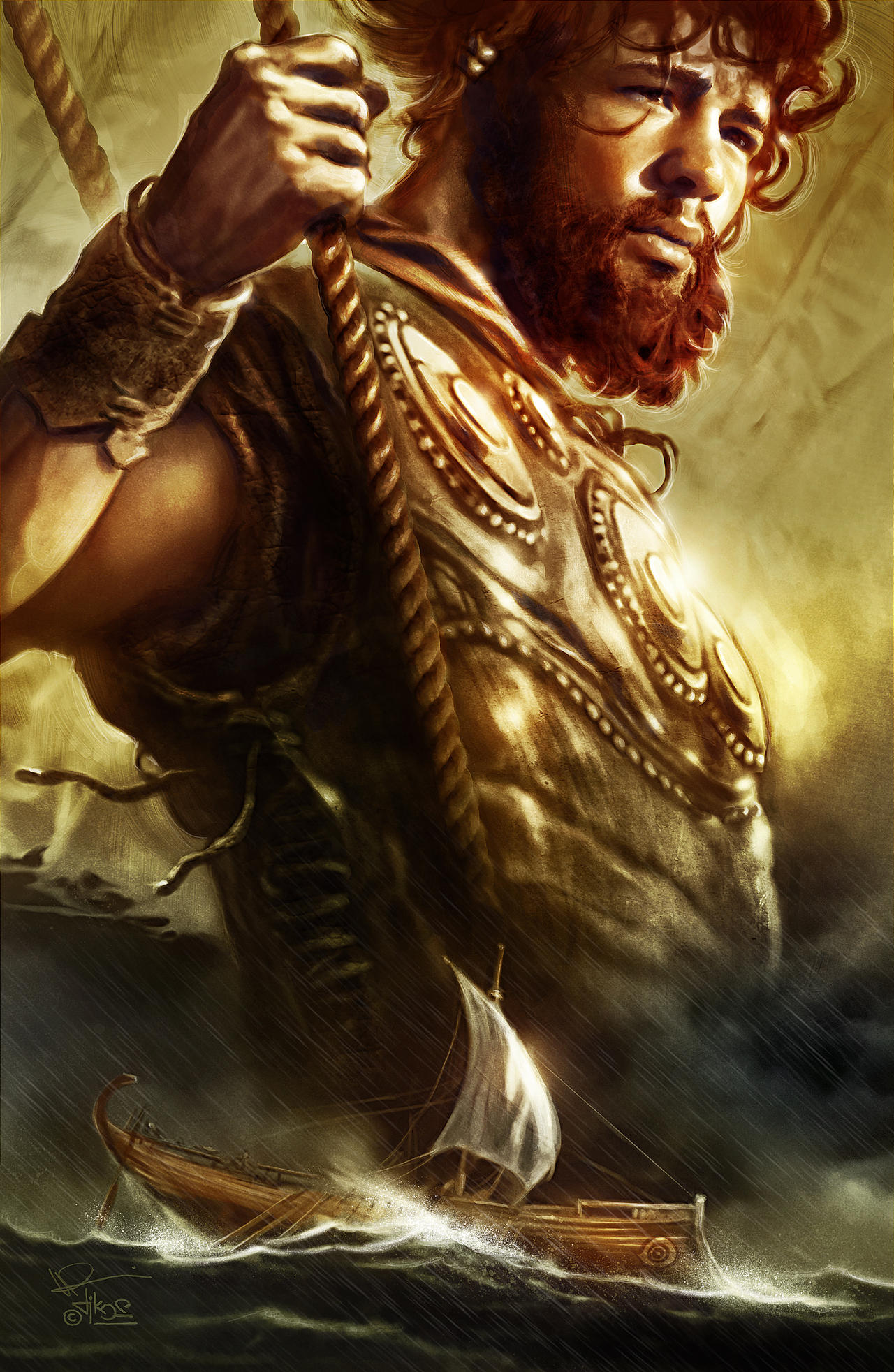 |
| Odysseus: a great man, husband, father, and leader. Can he really be compared to the Founder? |
Heroes are those who were raised in modest homes, but always seemed to have a great purpose. They are eventually turned into protagonists of everlasting stories because of their ambitious endeavors and success. Reverend Barbee glorifies the Founder by immortalizing him and his beliefs in a similar fashion. This long, epic story about a determined man is comparable to one very popular story: The Odyssey. Therefore, it can be said the Founder is a literary hero who embarks on a journey.
The Founder in his youth is much like other heroes: driven, intelligent, and obviously someone with great potential. He is a slave trying to self-educate himself “through shrewd questioning of his little masters” while he “learned the alphabet and taught himself to read” (119). In the monomyth, this is often called his Ordinary World. He then is approached by a man whom Reverend Barbee claims is “an emissary direct from above”, who tells the Founder where he should go to become a great man (121). This is the Founder's call to action. At this secret location is his archetypal mentor, a “seemingly demented black man” who teaches him everything (121). The Founder then moves throughout the country, going on his journey, until he gets what he wants — to be able to inspire a population of black people to become great. This was his goal, and he was willing to die for it. Die for it, he does.
Plus, Reverend Barbee’s first name is Homer. He speaks in an eloquent manner like Homer, and is blind like Homer. If a man named Homer is telling a story about a great man who endures through trials to achieve his goals, then this Founder must be a hero, right?
Or, is this what Reverend Barbee wants the students to think?
Want to know more about what makes a hero? Click here.
No comments:
Post a Comment